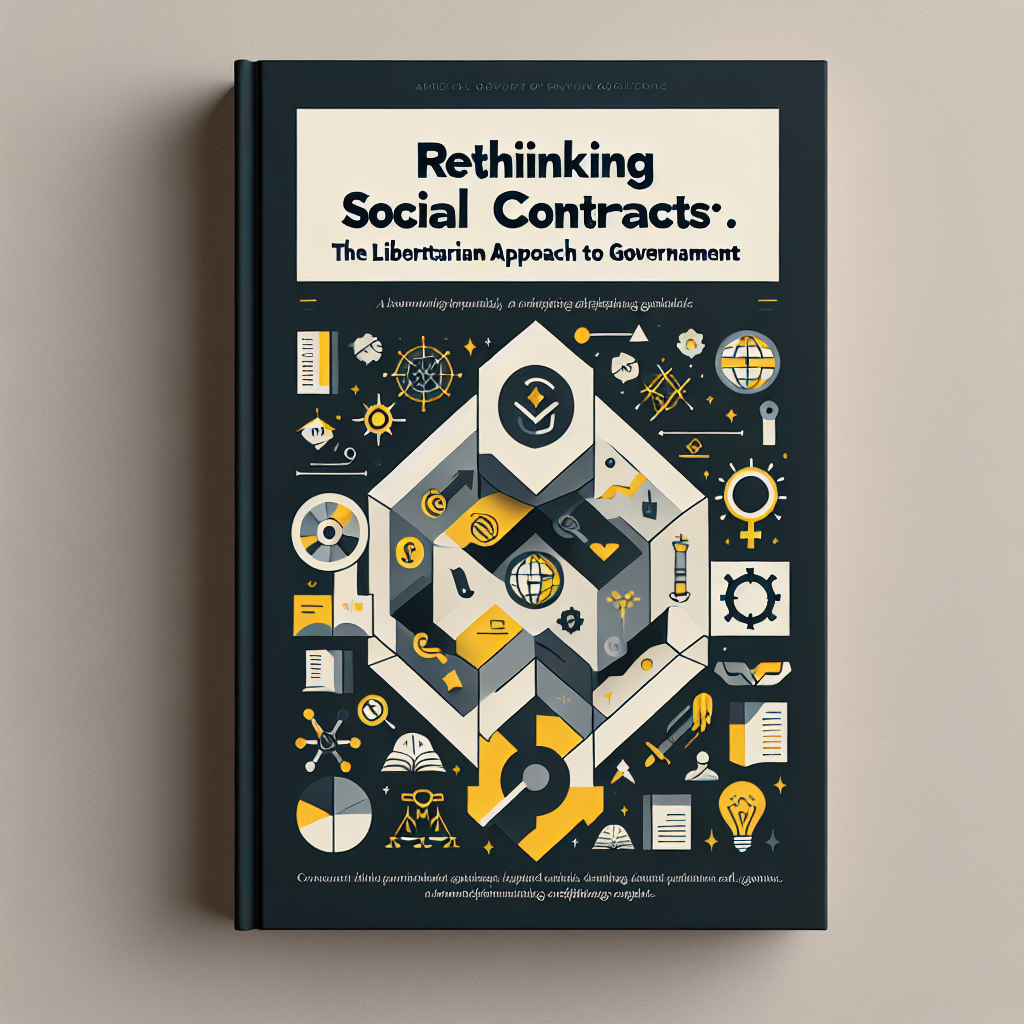Rethinking Social Contracts: The Libertarian Approach to Governance
In the debate over governance and political theory, the concept of the social contract has garnered considerable attention. Traditionally viewed through the lens of philosophers like John Locke, Thomas Hobbes, and Jean-Jacques Rousseau, the social contract is the basis of societal agreements and governance structures. However, the Libertarian approach offers a unique take on this longstanding theory—one that advocates for minimal state intervention and maximal individual freedom. This article delves into the Libertarian approach to governance, rethinking social contracts in the process.
Understanding Social Contracts: A Historical Overview
The social contract theory posits that individuals agree either explicitly or implicitly to form societies and government systems for mutual benefit. Historical philosophers have provided diverse interpretations of this idea:
- Thomas Hobbes argued for a strong, centralized authority to prevent chaos.
- John Locke emphasized natural rights and government as a protector of these rights.
- Jean-Jacques Rousseau introduced ideas of collective will and the general welfare that contradict deterministic governance.
These perspectives highlight how governance has traditionally been seen as both a necessity and a tool for social order.
What is Libertarianism?
At its core, Libertarianism advocates for individual liberty, free-market principles, and minimal government intervention. It contends that the best governance is one that allows individuals to thrive without excessive interference from the state. Libertarians believe that people have the capacity to make the best choices for themselves, fostering a society where voluntary agreements and market solutions replace coercive state mechanisms.
The Libertarian Reinterpretation of the Social Contract
Libertarians challenge the conventional concept of the social contract by redefining the relationship between individuals and the state:
1. Consent over Coercion
In a Libertarian framework, consent is a fundamental principle. Instead of an implied agreement to obey laws and regulations, individuals explicitly consent to the creation of institutions that protect their rights. This emphasizes personal choice over enforced compliance and aims to create a governance model that respects individual autonomy.
2. The Role of the State
Libertarians view the state as a necessary evil—an institution established primarily to safeguard individual rights, such as life, liberty, and property. The proper role of government is to maintain order, protect individuals from aggression, and provide a judicial system for resolving disputes. In this sense, the social contract should be limited in scope to these essential functions.
3. Decentralization and Local Governance
Emphasizing individual rights and local autonomy, Libertarians advocate for decentralized governance structures. This allows communities to tailor solutions to their unique needs, resisting one-size-fits-all mandates from a central authority. In this model, individuals can opt into various governance arrangements based on shared values and goals.
The Implications of a Libertarian Social Contract
Rethinking social contracts through the lens of Libertarianism invites several key implications for governance and society:
1. Enhanced Individual Freedom
By minimizing state intervention, individuals enjoy greater freedom to pursue their interests and engage in voluntary transactions. This fosters innovation and entrepreneurship, driving economic growth and social progress.
2. Market Solutions for Social Issues
Libertarians argue that many societal problems can be more effectively addressed through market-based solutions rather than government programs. For example, education and healthcare could be improved through competition and choice in services rather than through state control and regulation.
3. Protection Against Abuse of Power
A well-defined social contract limits government power, providing safeguards against tyranny and authoritarianism. By ensuring that the state fulfills only its essential functions, Libertarianism aims to prevent the expansion of governmental authority that often leads to the infringement of individual rights.
Critiques of the Libertarian Social Contract
While the Libertarian approach offers a compelling alternative, it also faces criticism. Critics contend that:
- Inequality could worsen: Without state intervention, disparities in wealth and opportunity may exacerbate existing inequalities.
- Public goods may be underfunded: Essential services like infrastructure and education could suffer without public funding and regulation.
- Risk of collective action problems: The Libertarian model may struggle to address challenges requiring collective solutions, such as climate change.
Conclusion: A New Framework for Governance
The Libertarian approach to rethinking social contracts promotes a vision of governance grounded in individual freedom and accountability. By redefining the relationship between citizens and their government, it emphasizes the importance of consent, decentralization, and the limited role of state authority. As societies continue to grapple with governance challenges in the 21st century, exploring Libertarian ideas may provide valuable insights into building a more just and free world.
In this era of rapidly changing political landscapes, reconsidering the nature of social contracts can lead to innovative solutions that respect individual freedoms while fostering a cohesive and functional society. Whether you are a Libertarian, a critic, or simply curious, engaging with these ideas can enrich the discourse on the future of governance.
Share this content:












Post Comment